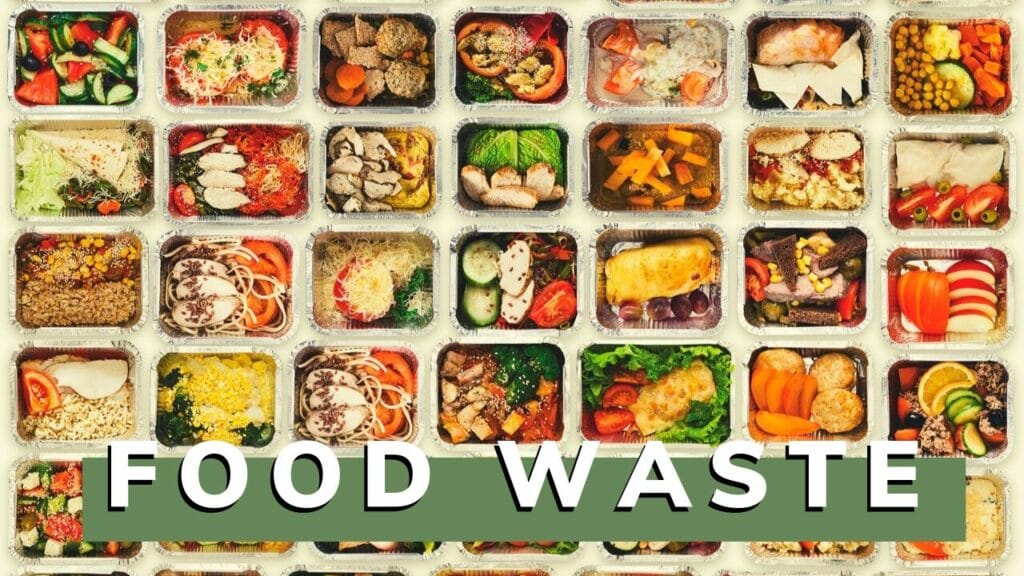Why Food Waste in the U.S. Is an Urgent Problem
Why is this evil?
The fact that food insecurity exists in the United States of America. Healthy People.gov defines food insecurity as the disruption of food intake or eating patterns because of lack of money and other resources. Those most affected are seniors, children, those living in rural communities, African Americans, and Latinx.
Just 1/3 of food waste in America could end food insecurity if it could be successfully distributed to those in need. In 2016, at one point during the year, 12.3% of American households experienced food insecurity.
While academics may question whether food donations can make a difference in long-term poverty and food insecurity, it is clear that redistributed food to food banks can alleviate hunger.
Editor’s Viewpoint:
Here are the critical points to understand about the food waste problem:
- Close to a third of the world’s food production is wasted each year, accounting for roughly 1.3 billion tons and nearly $990 billion dollars of food waste. The United States is the biggest culprit of food waste. Americans waste approximately $160 billions dollars in food. That’s is nearly 30 to 40 percent of the entire U.S. food supply.
- If those numbers are too big for you, let’s break it down by day. About 150,000 tons of food are tossed out each day in U.S. households.
- If those numbers are still too big for you to comprehend, then picture, in the United States alone, consumers throwing out nearly a pound of perfectly edible food each day.
- In a surprising finding, there is an ironic link between quality of diet and food waste: the healthier your diet is, the more food you throw in the trash.
The American Academy of Pediatrics (AAP) studied 22 food groups and found that fruits and vegetables were wasted the most, accounting for 39% of the total food waste. This was followed by dairy at 17 % and meat and mixed meat dishes at 14%.
So what can be done?
According to Green America, here are 5 tips that you can do to help reduce America’s food insecurity problem.
1. Plan your meals. The more precise you are about what you’re going to eat and when, the less food you’ll waste. Meal-planning apps can help! For example, Yummly features over a million recipes, allowing you to save your favorites in a virtual recipe box. You can choose what meals you want to make, and Yummly (Free online for iOS, Android) sends the ingredients to a grocery list—which you can export to Instacart, a grocery delivery app.
2. Store your food well. Sustainable America offers plenty of helpful resources for smart food storage—including infographics for optimally packing your fridge, and “Eat Me First” signs you can print and put on food that’s close to its expiration date. The Natural Resources Defense Council has its own food-waste tips and resources at savethefood.com.
3. Practice emergency use-it-up measures. The Waste-Free Kitchen Handbook has plenty of practical advice for using up foods that are moving past peak-freshness. Turn to pp. 20-21 for a sampling, and read the book for more. Find many use-it-up recipes at ivaluefood.com, as well. And don’t forget to can or preserve extra produce!
4. Support food-rescue efforts for families in need. Find groups across the country that are salvaging dropped produce from fields or rescuing wasted food from stores and restaurants, and sending it to food pantries for food-insecure households. Support legislation that will make it easier and more affordable for farms and businesses to donate excess food.
5. Get your community involved. Take the Food Waste Challenge within your community. The EPA offers a toolkit to help communities start a campaign to reduce food waste. Ask local stores and restaurants about their food-waste practices, and support those that donate and compost. Demand your local government start a municipal composting program; consult the Institute for Local Self-Reliance for help and resources.
Here are 3 food charities that you can get involved in to support eliminating food insecurity at home and abroad:
Waste No Food – http://wastenofood.org/
Rescuing Leftover Cuisine – https://www.rescuingleftovercuisine.org/
FareShare – https://fareshare.org.uk
Stories you should know
Don’t
Do not… meaning your should not engage, deal with, or work for.
Compromise
Compromise is the act of surrendering core values or beliefs in order to achieve a perceived solution.
Evil
We define evil as a deliberate harmful action.
Evil is not an opposing viewpoint or ideology.
Evil is not an individual person, organization, business, or government entity.
However, evil is the premeditated, harmful action done by an individual person, organization, business, or government entity.

